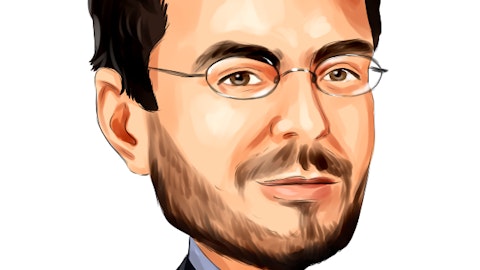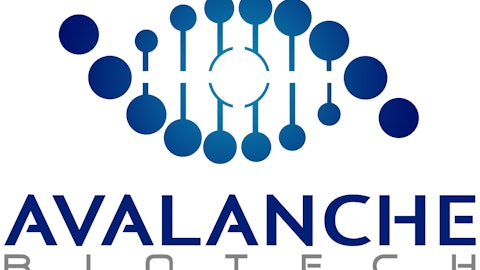Peter Kolchinsky’s RA Capital Management filed its latest 13F with the Securities and Exchange Commission in February, and we’ve gone through the data to highlight three of its top new picks in the biotech sector last quarter, which RA Capital specializes in. Nearly the entirety of the fund’s portfolio was invested in healthcare stocks at the end of the year, with 98.8% of the fund’s portfolio value of $930.50 million belonging to that sector.

Kolchinsky co-founded RA Capital Management in 2001 with Rich Aldrich, after graduating from Harvard that same year with a Ph.D in virology. Kolchinsky put his expertise in the healthcare field to work picking healthcare stocks immediately, outperforming the S&P 500 by 22 percentage points in 2002. After maintaining a mostly concentrated portfolio for many years, Kolchinsky has begun to diversify his portfolio the past two quarters, bumping it up to 51 holdings at the end of the year, from just 28 six months prior. The results have been immense, with RA Capital posting third quarter returns of 51.5% and 1-year returns of 71.4% using our own methodology, greatly outpacing every other hedge fund we track.
With that in mind, let’s check out which new positions Kolchinsky is pinning some of his hopes for great returns on in this quarter. First up is Regulus Therapeutics Inc (NASDAQ:RGLS), the largest of his new positions. Kolchinsky opened a massive 4.74 million share position in the pre-clinical stage biopharmaceutical company, which accounted for 8.17% of his entire portfolio’s value, and placed it third among his long positions. That also amounted to a 9.8% passive position in the company, which Kolchinsky revealed in a filing in November.
That filing came shortly after Regulus absolutely spiked, more than tripling in value between October 17 and November 7. As with most early-stage biotech companies, the spike occurred because of positive results from one of the company’s trials, in this case based on results from its human proof-of-concept trial for the hepatitis C drug RG-101. Those trials showed not only a high cure rate in a short period of time from just a single subcutaneous treatment, but also showed positive results across varying genotypes of hepatitis C.
Several other hedge funds also took note of Rgeulus Therapeutics during the fourth quarter, with nine funds opening new long positions, compared to just two funds that held positions at the end of the third quarter (and both of whom, interestingly enough, sold out of their positions during the fourth quarter). Bihua Chen’s Cormorant Asset Management, one of the newest funds we track, was the largest shareholder after Kolchinksy among tracked funds, with a position of 1.10 million shares.
Second on the list is Trevena Inc (NASDAQ:TRVN), in which Kolchinksy opened a 2.97 million share stake in during the fourth quarter. This is another stock that proved popular among funds during the quarter, with four opening new positions, and three with existing positions expanding them greatly, while just two closed their old positions. Kolchinsky also had the largest position in Trevena among tracked funds, with Stephen Dubois’s Camber Capital Management having a slightly smaller one of 2.87 million shares, also newly opened last quarter.

Trevena is a clinical stage biopharmaceutical company working on treatments that target G Protein-Coupled Receptors (GPCRs). Those receptors are involved in various diseases, giving the treatments a potentially vast range of uses. In current stages of testing are treatments that target acute heart failure, as well as two treatments that treat moderate to severe acute pain; one orally, the other intravenously. Trevena shares have had a rocky ride since the company’s IPO early in 2014, shedding over 50% between the middle of March and the middle of May.
Lastly is Juno Therapeutics Inc (NASDAQ:JUNO), which launched its IPO in the latter half of December. That didn’t stop Kolchinsky and several other fund managers from initiating positions, which in Kolchinsky’s case was a 280,000 share position. In fact, funds were extremely bullish on the stock, with 27 of them holding new positions in less than two weeks. The largest of these was VHCP Management’s 1.75 million share position, which also happens to be its largest position now.
The funds seem to have known what they were doing, as Juno has soared 42.86% since its IPO, though it is down more than 18% from a high of $61.51 on January 12. The clinical stage company has a mission to use patients’ own immune systems as their first line of defense, developing cell-based treatments that will genetically engineer T cells to combat the cancer cells in one’s body. Early trial data has shown some positive results, with the shrinkage of tumors in certain kinds of cancer.
Disclosure: None



